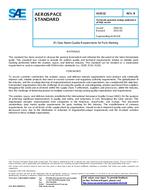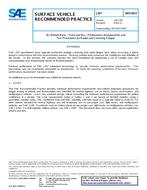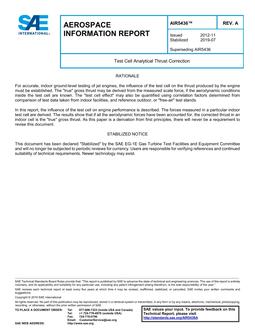Click here to purchase
This document defines a set of standard application layer interfaces called JAUS Mobility Services. JAUS Services provide the means for software entities in an unmanned system or system of unmanned systems to communicate and coordinate their activities. The Mobility Services represent the platform-independent capabilities commonly found across all domains and types of unmanned systems. At present, 15 services are defined in this document. Some examples include: Pose Sensors: Determine the instantaneous position and orientation of a platform in global or local coordinates; Velocity State Sensor: Determines the instantaneous velocity of a platform; Acceleration State Sensor: Determines the instantaneous acceleration of a platform; Primitive Driver: Performs basic mobility for a platform based on force/torque efforts; Vector Drivers: Perform closed loop mobility for straight line travel; Velocity State Driver: Similar to vector drivers, but with additional degrees of freedom; Waypoint Drivers: Perform closed loop mobility to a location specified; Waypoint List Drivers: Performs closed loop mobility using a series of locations; Path Segment Drivers: Performs closed loop mobility along a specified path.Each service is described by a JAUS Service Definition (JSD) which specifies the message set and protocol required for compliance. Each JSD is fully compliant with the JAUS Service Interface Definition Language (JSIDL).The purpose of this document is to facilitate interoperation of unmanned vehicle systems, subsystems, and payloads by standardization of the message set and associated protocol.
Product Details
- Published:
- 04/15/2009
- File Size:
- 1 file , 550 KB


